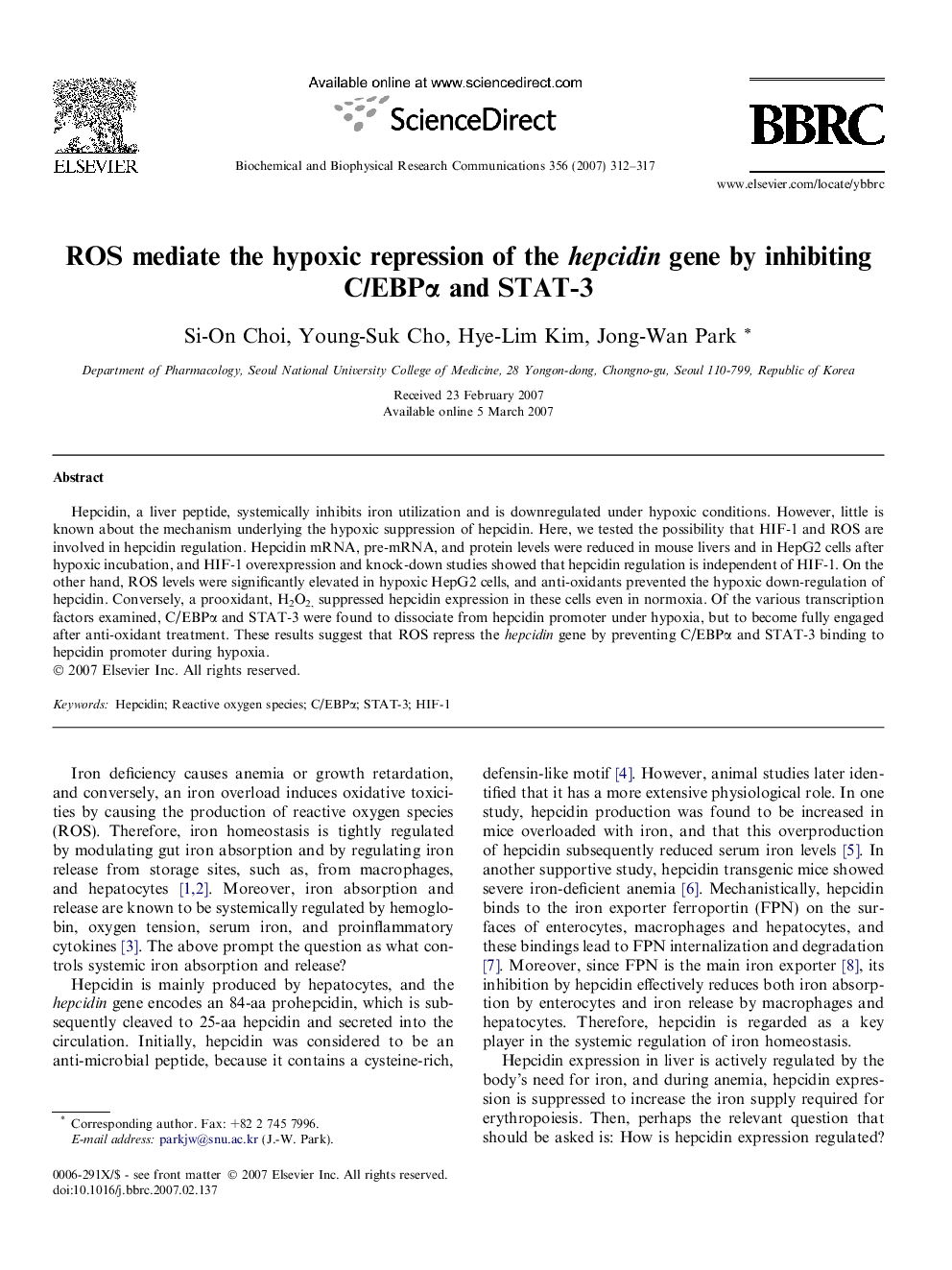| Article ID | Journal | Published Year | Pages | File Type |
|---|---|---|---|---|
| 1938667 | Biochemical and Biophysical Research Communications | 2007 | 6 Pages |
Hepcidin, a liver peptide, systemically inhibits iron utilization and is downregulated under hypoxic conditions. However, little is known about the mechanism underlying the hypoxic suppression of hepcidin. Here, we tested the possibility that HIF-1 and ROS are involved in hepcidin regulation. Hepcidin mRNA, pre-mRNA, and protein levels were reduced in mouse livers and in HepG2 cells after hypoxic incubation, and HIF-1 overexpression and knock-down studies showed that hepcidin regulation is independent of HIF-1. On the other hand, ROS levels were significantly elevated in hypoxic HepG2 cells, and anti-oxidants prevented the hypoxic down-regulation of hepcidin. Conversely, a prooxidant, H2O2, suppressed hepcidin expression in these cells even in normoxia. Of the various transcription factors examined, C/EBPα and STAT-3 were found to dissociate from hepcidin promoter under hypoxia, but to become fully engaged after anti-oxidant treatment. These results suggest that ROS repress the hepcidin gene by preventing C/EBPα and STAT-3 binding to hepcidin promoter during hypoxia.
